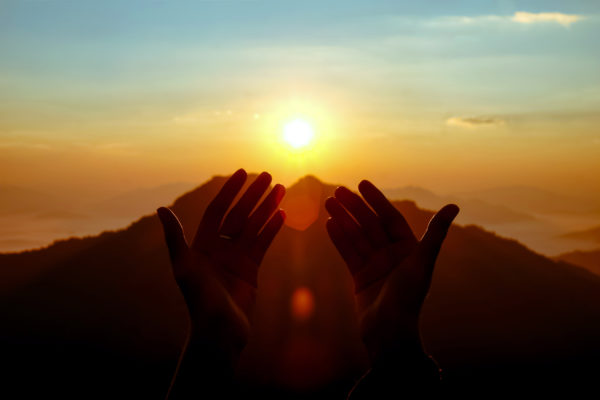Sometimes the very act of gratitude is the hardest thing for us to carry out, but why?
Sometimes the very act of gratitude is the hardest thing for us to carry out, but why?
Youngsters and elders of this era, while leading their lives in this material realm, work hard to make their lives better. After all, we all need to have a satisfied life, don’t we? We all need peace. Yet after all the hard work we do to make everything better, the world still fails to find out the cause of lower rates of the subjective well-being of individuals. This prolonged struggle and hard work have made us too busy to neglect the two most important things, which in my view, can actually lead to a satisfied life: analysis of one’s self, and gratitude for what one has.
Self-analysis
When I say self-analysis, I mean analysing our actions, the things we do all day long. This self-analysis makes us conscious or aware of our doings which in turn can lead to control over acts. That means we are in charge of the dos and don’ts and we may learn how and when to act. At this stage, we then should start to take responsibility for our actions by holding ourselves accountable. Accountability means to start counting! Start counting the things you do wrong in your day. The Arabic term for accountability is ‘Muhasaba.’ Regarding self-accountability, the Messenger of God (peace be upon him) is reported to have said,
“The wise person is one who holds himself accountable.”
Ali ibn Abi Talib is reported to have said,
“Hold yourself accountable before you are held accountable”
Scholars suggest the best time for self-accountability is at night time before going to sleep, and the reason for this may be because it’s the end of the day.
The next stage is ‘Musharitah’ roughly translated as ‘agreement’. At this stage, a person makes an ‘agreement’ with oneself, that if he commits such-and-such deed, he would reward himself if the desired action is done, and would sanction himself in the case of an undesired action. For instance, a person could say, “If I don’t study for an hour today, I shall study for 3 hours tomorrow as penalty”, or “If I tell a lie, I would offer two- raka’ah prayer as a penalty.” These are the examples of sanctioning or penalizing oneself for an undesired action. Doing this makes a person responsible and sensible, and it makes a person stronger in terms of what he wants/has to do and what he doesn’t want or have to do.
Gratitude
The next important thing is gratitude or thankfulness. We really have stopped being thankful for everything we have, and our struggle for better life diverts our attention towards ‘wants’ which we eventually transform into our ‘needs.’ How much time does it take to utter these five words, “Thank you God for everything”? We really have to think about this. By saying that, you are essentially saying, “Oh God! I am thankful to you for granting me ears with which I hear daily and eyes with which I see daily, legs with which I walk daily, hands with which I eat and work daily and I thank you for everyone and everything that has taught me something, everything that has made my life wonderful, everything that tells that I belong somewhere, everything that tells me I am loved by someone.”
How much time does it really take to count the blessings and be thankful for them? Is it that hard? Besides the big things, we have small things to be grateful for too, and the same goes for both manifested and hidden blessings. I wish there was a way to write down all His blessings in one place, but uncountable doesn’t mean we don’t count at all. We start from small and then go towards the bigger ones. You thank God for small and less you have and He returns you with big and more. This is beautifully expressed in holy Quran:
- “If you are grateful, I will surely give you more” (Ibrahim 14:7)
- “And whoever is grateful, he is only grateful for the benefit of his own self” (Luqman 31:12)
Isn’t having more of what we want working towards our own benefit?
Now, if we bring these two things together, since self-analysis should lead to gratitude, we find that the missing connection for real happiness and satisfaction is our connection with God. It is us who have damaged the relationship between us and the self-sufficient Master by being neglectful. We have also stopped communicating with God, while knowing that if we create communication gaps in our relationships and keep on increasing those gaps, our relationships will eventually be ruined.
So let’s start – with just ten minutes. Ten minutes a day is a good start to walk the path leading to happiness. Ten minutes at least to think (self-analysis) and thank (gratitude). We need to reconnect and reestablish the connection we lost, for to Him is our return.
By Syed Mustafa Al-Sadr





